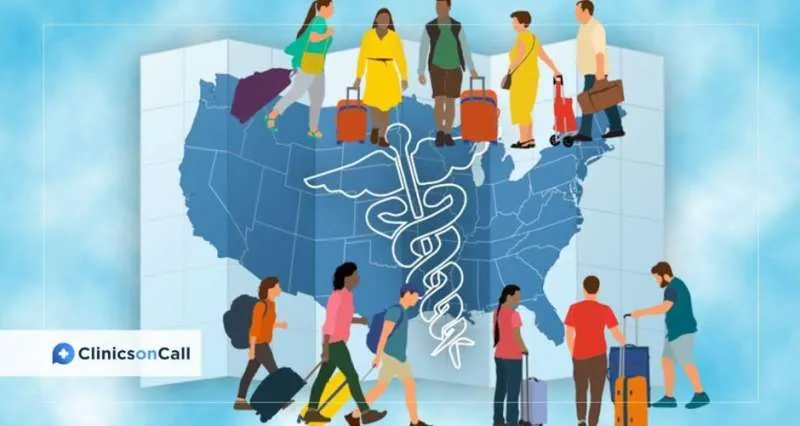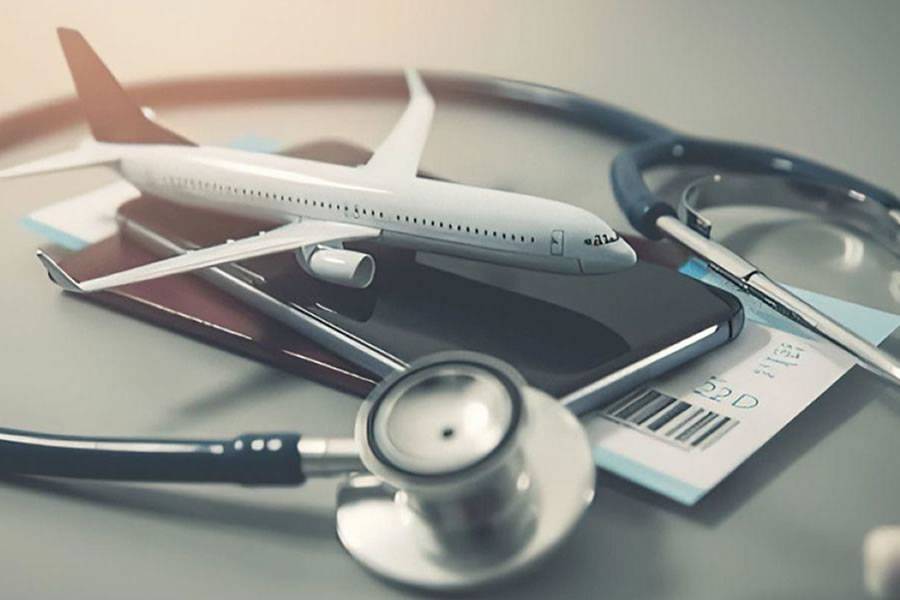Medical tourism
- 31-12-2024
- Travel
- collaborative post
- Photo Credit: ClinicsOnCall
Medical tourism refers to travelling to other countries to receive medical care. Many people choose this option because medical procedures can be more affordable in other countries. Additionally, patients can avoid long waiting lists and delays for treatments.
Some people travel specifically for procedures that are not available in their home country. Examples of these procedures include stem-cell transplants, gender-reassignment surgeries, and other specialised treatments. This option allows patients to access healthcare that might be out of reach or expensive at home.
In this article, we will talk about medical tourism, its history and the services offered.
HISTORY AND GROWTH OF MEDICAL TOURISM
Throughout history, people have travelled long distances for health care. In ancient Greece, followers of Asclepius, the god of medicine, would journey to his temple in Epidaurus, where they sought healing through rituals that included prayer, fasting, and ceremony. Spas and public baths have long been destinations for people seeking medical cures.
In the 17th century, spa towns in attractive locations like the Pyrenees drew wealthy Europeans. As travel and tourism expanded, health resorts and spas in many countries, including South Korea and Mexico, became popular with international visitors seeking medical treatments.
In recent years, travelling internationally for surgery has become more common. In the 1980s, Costa Rica attracted many foreign visitors seeking cosmetic and dental surgeries due to lower costs.
By the 1990s, Costa Rican doctors actively marketed plastic surgery procedures, such as facelifts and liposuction, drawing more patients from abroad.
Today, countries like Turkey, South Korea, Mexico, and the United Kingdom are top destinations for medical tourists. Turkey is known for its advanced medical facilities, particularly in cosmetic surgery and dental procedures and attracts patients from Europe, the Middle East, and beyond.
South Korea has built a reputation for cutting-edge medical technology, especially in cosmetic surgery, with its renowned expertise in procedures like rhinoplasty and facelifts. Similarly, Mexico is a popular destination for Americans seeking affordable treatments, including dental work, bariatric surgery, and cosmetic procedures.
The UK, with London as a major hub, has also become a go-to destination for medical tourism, particularly for those seeking specialised aesthetic treatments, with clinics like Botonics being a prime example. These countries, along with others, continue to see a steady rise in medical tourism, with many offering high-quality care at lower prices than in countries like the U.S. The global growth in medical tourism has led to more people seeking affordable, high-quality treatment options in countries such as Turkey, London, South Korea and Mexico.
DESTINATIONS AND SERVICES OFFERED

Medical tourists come from both developed and developing countries. A large number of medical tourists are from the United States, Canada, and the United Kingdom.
These countries have high healthcare costs, which often lead people to seek more affordable treatments abroad. Medical tourism offers a way to receive quality healthcare at a lower cost, making it an attractive option for many.
Popular destinations for medical tourism include Turkey, Mexico, Singapore, South Africa, and Thailand. These countries are known for their modern medical facilities, skilled doctors, and 20-25% lower treatment costs compared to the USA and Canada.
Patients often choose these destinations for procedures that may be expensive or harder to get in their home countries.
Medical tourism clinics are usually modern, well-equipped places that provide high-quality care.
These clinics often hire doctors who have advanced medical degrees and many years of experience in their fields. Many clinics are also internationally recognized, ensuring that patients get care that meets global standards.
Travel agencies and medical tourism websites, such as ClinicsonCall, play an important role in making medical tourism easier. ClinicsonCall is a trusted medical tourism agency that helps patients find the right clinics and doctors for their needs.
They offer services like arranging consultations, treatment plans, and travel details. ClinicsonCall also gives patients detailed information about the procedures they want, the costs involved, and the recovery process.
In addition to common medical procedures, medical tourism can offer a wide range of services, from cosmetic surgeries to complex treatments like heart surgery, eye surgery, dental care, and joint replacements.
Mental health services and gender-change surgeries are also available in countries where these procedures may not be accepted or allowed. These services are often more affordable and easier to access in medical tourism destinations, making them a popular choice for patients looking for treatments that may not be offered or allowed in their own countries.
With agencies like ClinicsonCall, medical tourists can enjoy all-inclusive packages that handle everything from travel bookings to after-surgery care.
These packages often offer recovery time as a holiday experience, allowing patients to rest and enjoy their surroundings while they heal. This combination of affordable medical care and a relaxing recovery makes medical tourism a popular choice for people around the world.
SOCIAL AND ETHICAL ISSUES IN MEDICAL TOURISM
The medical tourism industry faces criticism for inconsistent quality of care. Accreditation is a key way to standardize international healthcare. It ensures medical facilities meet basic safety standards, have trained staff, and use proper medical equipment for procedures.
Major accreditation organisations include the Joint Commission International (JCI), Accreditation Canada International, and the Australian Council on Healthcare Standards International. These organisations charge fees to survey facilities for accreditation. They also maintain lists of accredited hospitals to help people find reliable healthcare options abroad.
Conclusion
Medical tourism provides patients with the opportunity to access quality healthcare at lower costs in different countries. It allows individuals to receive treatments not available or affordable in their home country.
As the industry grows, it is important to continue improving patient safety and ensuring that medical facilities meet high-quality standards worldwide.
Other articles that may interest you...
Trending
Most Read Articles
Featured Videos
TributoFest: Michael Buble promo 14.02.2026
- 30-01-2026
TEAs 2025 Highlights
- 17-11-2025































































